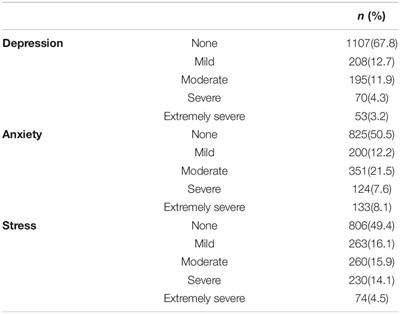
Educational institutions of all levels have a need for workers who can help students cope with challenges that impede their academic performance and personal development. School counselors achieve this by promoting students’ academic, social and emotional development through individual or small-group counseling sessions. School psychologists provide a similar service, but their job duties are specialized to address the mental health and behavioral counseling needs of the student population. Both occupations are important, and comparing the scope of work for school counselors vs. school psychologists helps put their individual roles within the education system into a better perspective.
What Is School Counseling?
School counselors work in educational institutions ranging from elementary schools to high schools. Their objective is to observe students and offer them the support they need to have an optimal experience at school. School counselors have vastly different responsibilities depending on the age of the students they are working with. For example, counselors working in high schools guide their students through the basics of higher education and career planning, while counselors working with younger students typically focus on developing social skills and study habits. Yet there are many aspects of school counseling that are universally applicable across all age ranges. All school counselors help students identify and address personal challenges, integrate with their surroundings, and plan for academic success.
What Is School Psychology
School psychologists typically work with students who have more intensive mental health needs. These professionals perform psychological assessments and develop and implement intervention strategies. In a school setting, psychologists also work with faculty members, administrators and parents to discern which types of challenges certain students face. They must also monitor the effectiveness of their strategies over time to determine whether there are opportunities to make improvements. Administrators may work with more experienced school psychologists to develop education policies that promote mental health in student populations.
School Counselor vs. School Psychologist
School counselors and school psychologists both provide services that support students and encourage healthy development. However, they typically take different approaches to achieve these goals. School counselors deliver basic services to a broad range of students, but school psychologists provide comprehensive mental health care services to students who are struggling with their mental health. The difference lies in the fact that counselors offer a more general service, while psychologists are more specialized.
Qualifying for employment as a school psychologist requires extensive education and training. The minimum requirement to become a school psychologist is usually a master’s degree in psychology or a more specialized discipline, such as school psychology or educational psychology. State-issued licenses are also required. In many instances, employers prefer candidates who have a doctoral degree or several years of professional experience.
While school counselors often have a broad scope of job responsibilities, they also follow a specialized educational path. Students must earn a master’s in counseling or a related subject and pass an exam to qualify for a school counseling license. Some state licensing boards also require one or two years of teaching experience.
While most schools have at least one counselor on staff, a school psychologist may serve several schools or an entire district. When a counselor determines that a student might require more advanced mental health evaluation, the counselor may ask administrators to arrange visits from a school psychologist. Counselors and psychologists sometimes collaborate in formulating intervention plans based on a student’s individual needs.
Career Comparison
The employment outlook for professionals in both of these occupations is positive. The U.S. Bureau of Labor Statistics forecasts that the number of school counselor and school psychologist jobs will increase 13 percent and 14 percent, respectively, from 2016 to 2026. School and career counselors earned a median annual salary of $55,410 in 2017. For clinical, counseling and school psychologists, the median salary was $75,090. Median incomes are higher for those who have doctoral degrees and extensive experience in their fields.
Understanding the differences in school counselors vs. school psychologists could make it easier to decide which career would be the best fit for one’s own interests and professional goals. Those who want to serve as the first line of defense in supporting student development should consider setting their sights on earning a master’s in counseling.
Learn More
The online master’s in counseling program at Wake Forest University teaches students valuable skills that can help fuel success in a number of possible career fields, including school counseling. The 60-hour online master’s in school counseling degree offers clinical instruction through practicum and internship experiences, as well as advanced therapeutic techniques.
If you are interested in becoming a catalyst for positive change in students’ lives, learn more about how Wake Forest University can help prepare you to achieve your professional goals.
Recommended Reading
What Is the Difference Between a Counselor and a Psychologist?
Counseling vs. Psychotherapy: Choosing the Right Path
Sources
Bureau of Labor Statistics, Psychologists
Bureau of Labor Statistics, School and Career Counselors
Bureau of Labor Statistics, School Counselor
Psychology
School psychologist vs. school counselor: Which career is your calling? [Infographic]
As you’ve explored your career options over the years, you may have finally realized your calling to dedicate your life’s work to supporting the youth in your community. And where better to do this than in our schools?
But working in education doesn’t necessarily mean you have to lead your own classroom. If you’re more motivated by providing students with the tools they’ll need to be successful, you may consider a career as a school psychologist or a school counselor.
Chances are, you’ve interacted with one of these professionals at some point during your own years as a student. But when comparing the roles of a school psychologist versus school counselor, could you explain the differences? Read on for a breakdown of both roles plus career projections.
What’s the difference between a school counselor and a school psychologist?
While both school psychologists and school counselors focus their work on the mental health, emotional well-being and academic achievement of students, there are some distinctions between the two. We put together this infographic to help you sort out the variances as you decide the best way for you to make an impact.

What is a school psychologist?
School psychologists help identify issues holding students back from success and determine solutions to pave the way for personal and academic achievement. These professionals work with students who may qualify for special services. They conduct psychological tests, develop individualized education plans and inform parents and teachers about behavior modification techniques.
Most school psychologists are employed in schools, community health centers and clinics. To qualify for one of these important roles, you’ll want to become well-versed in the skills employers are looking for.
We used real-time job analysis software to examine more than 19,000 school psychologist job openings from the last year. This data helped us determine what employers are looking for in candidates.
School psychologist skills in highest demand1
- Special education
- Psychology principles
- Mental health
- Crisis intervention
- Behavioral health
The future looks promising for school psychologists, with experts projecting jobs in this realm to grow 10 percent by 2030, which is faster than the rate of the national average. Armed with an advanced degree in the field, you could land a job as a school psychologist, which currently boasts a median annual salary of $79,510.
What is a school counselor?
School counselors serve the social and emotional needs of students while helping them explore potential career options. They typically work in an office within a school and serve the entire student population. Counselors advise students regarding personal or behavioral issues; help prepare them for the future and discuss progress with parents and teachers. These professionals may also facilitate workshops on topics like drug prevention.
In our analysis of more than 17,000 school counselor job openings from the last year, we learned what employers are looking for in candidates for this position.
School counselor skills in highest demand2
- Teaching
- Mental health
- Special education
- Assessment data
With a master’s degree, you could qualify for an impactful role as a school counselor, which could earn you a median annual salary of $60,510. This is also a field set to see some notable growth, as projections indicate that school counselor jobs will grow 14 percent by 2030.
School psychologist vs. school counselor: Which path is right for you?
This side-by-side comparison should have you feeling more equipped to take the next step in your journey toward career fulfillment. Now that you know the difference between a school counselor and a school psychologist, which do you feel aligns best with your personal skills and interests?
If you’re drawn toward a career as a school psychologist, check out our article “What does a school psychologist do? Breaking down this collaborative career.”
But if you’re feeling more compelled to pursue a career as a school counselor, head over to our article “What does a school counselor do? A closer look at this student-centric role.”
1 Burning-Glass.com (analysis of 19,105 school psychologist job postings, Aug. 01, 2021 – Jul. 31, 2022)
2 Burning-Glass.com (analysis of 17,442 school counselor job postings, Aug. 01, 2021 – Jul. 31, 2022)




